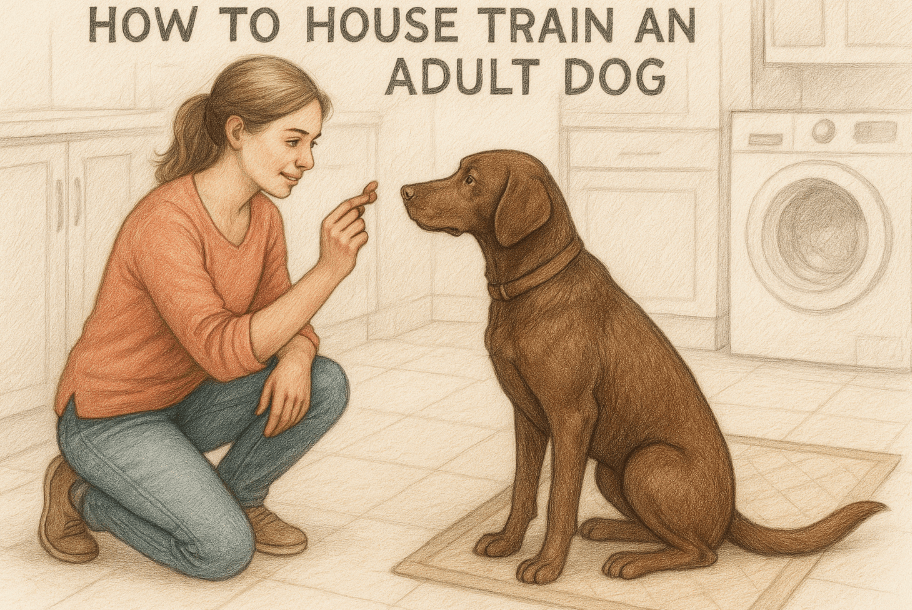Dog Begging for Food: How to Manage and Prevent This Behavior
Few things are as endearing—and as challenging—as a dog begging for food. Those puppy-dog eyes, the persistent whining, and the hopeful paw taps can melt even the toughest hearts. While it’s natural for dogs to seek out tasty treats, giving in to their pleas can lead to unhealthy habits and behavioral issues. Understanding why dogs beg and how to address this behavior is key to maintaining a balanced relationship with your furry friend. In this blog post, we’ll explore the reasons behind begging, practical tips to stop it, and ways to ensure your dog stays happy and healthy without resorting to table scraps.
Why Do Dogs Beg for Food?
Begging is a learned behavior that often stems from a combination of instinct, environment, and reinforcement. Identifying the root causes can help you address the issue effectively.
Natural Instincts:
Dogs are opportunistic scavengers by nature, always on the lookout for food sources. Begging is an extension of this survival instinct.Reinforcement from Owners:
If you’ve ever given your dog a bite of your meal, they quickly learn that begging leads to rewards.Boredom or Lack of Stimulation:
Dogs may beg out of sheer boredom, especially if they don’t have enough mental or physical exercise.Smell of Human Food:
The enticing aroma of human meals can trigger curiosity and desire in dogs, making them more likely to beg.Attention-Seeking Behavior:
Even negative attention, like scolding, can reinforce begging if it’s the only way your dog feels noticed.
Understanding these motivations is the first step toward curbing unwanted begging behaviors.
How to Stop Your Dog from Begging for Food
Stopping your dog from begging requires consistency, patience, and positive reinforcement. Here are some effective strategies to manage this behavior.
Set Clear Boundaries:
Establish rules early on, such as no begging at the table, and enforce them consistently every time.Ignore Begging Completely:
Avoid eye contact, speaking, or acknowledging your dog when they beg—this removes the reward of attention.Provide Mental and Physical Exercise:
A tired dog is less likely to beg; engage them with walks, playtime, or puzzle toys to burn off excess energy.Feed Them Before You Eat:
Ensure your dog is well-fed before mealtimes to reduce their hunger-driven begging.Teach the “Place” Command:
Train your dog to go to a designated spot (like a bed or mat) during meals, rewarding them for staying there.
With consistent effort, these strategies can help eliminate begging and promote better behavior around food.
Check this guide 👉Rancid Dog Food Symptoms: Best 7 Expert Tips!
Check this guide 👉What Is Egg Product in Dog Food? Best 7 Expert Tips!
Check this guide 👉What is Hepatic Dog Food? Best 7 Expert Tips!

Tips to Prevent Begging | Common Mistakes to Avoid |
|---|---|
Feed your dog before your own meals | Giving in occasionally to cute antics |
Use a designated spot for meal times | Feeding table scraps regularly |
Reward calm behavior instead of begging | Scolding or yelling at your dog |
Keep human food out of reach | Leaving food unattended on counters |
Provide plenty of exercise and toys | Reinforcing begging with attention |
Training Techniques to Discourage Begging
Training plays a crucial role in teaching your dog appropriate behaviors around food. These techniques focus on redirecting their attention and reinforcing good habits.
Use Positive Reinforcement:
Reward your dog with treats or praise when they exhibit non-begging behaviors, such as sitting calmly away from the table.Practice the “Leave It” Command:
Teach your dog to ignore food on the floor or table by using the “leave it” command consistently.Create a Routine:
Establish a predictable feeding schedule so your dog knows when to expect meals, reducing anxiety about food.Redirect with Toys or Chews:
Offer interactive toys or long-lasting chews during mealtimes to keep your dog occupied and distracted.Involve Family Members:
Ensure everyone in the household follows the same rules to avoid mixed messages that can confuse your dog.
Consistent training and clear communication help your dog understand what’s expected of them.
Health Considerations When Dealing with Begging
While begging is often behavioral, it’s important to rule out underlying health issues that could be contributing to your dog’s food obsession.
Increased Hunger Due to Diet:
If your dog seems unusually hungry, evaluate whether their current diet meets their nutritional needs.Potential Medical Conditions:
Conditions like diabetes, thyroid issues, or parasites can increase appetite; consult your vet if begging becomes excessive.Weight Management Concerns:
Overfeeding table scraps can lead to obesity, which poses serious health risks for dogs.Food Allergies or Sensitivities:
Some dogs may beg because they’re not tolerating their regular food well; consider switching to hypoallergenic options.Age-Related Changes:
Senior dogs may experience changes in metabolism or appetite, requiring adjustments to their feeding routine.
Addressing these factors ensures your dog’s begging isn’t masking a deeper issue.
Signs Your Dog’s Begging Is Becoming a Problem
While occasional begging is normal, certain signs indicate it’s becoming a deeper issue that needs attention. Recognizing these red flags helps you intervene early.
Persistent Whining or Barking:
Constant vocalization during meals can signal frustration or over-reliance on begging.Aggressive Behavior Near Food:
Growling or snapping when food is present may indicate resource guarding or heightened anxiety.Ignoring Commands:
If your dog refuses to listen to basic commands during mealtimes, it shows a lack of discipline.Obsessive Focus on Human Meals:
Excessive fixation on what you’re eating can suggest nutritional deficiencies or boredom.Weight Gain or Loss:
Changes in weight may reflect overfeeding scraps or insufficient nutrition from their regular diet.
Addressing these signs promptly prevents further escalation of problematic behaviors.
Creative Ways to Keep Your Dog Occupied During Mealtimes
Keeping your dog entertained during human mealtimes reduces their urge to beg and keeps them mentally stimulated.
Interactive Feeding Toys:
Fill Kongs or puzzle feeders with treats to keep your dog busy while you eat.Chewable Treats:
Offer long-lasting chews like bully sticks or dental bones to satisfy their chewing instincts.Scheduled Play Breaks:
Engage your dog in a short play session before meals to tire them out and curb excitement.Crate Training:
Place your dog in their crate with a toy or treat-stuffed Kong to create a safe, distraction-free space.Calming Music or Sounds:
Play soothing music or white noise to help relax your dog during your mealtime.
These activities keep your dog content and focused elsewhere, reducing their need to beg.
Teaching Children to Handle Begging Behavior
Children often unintentionally reinforce begging by sneaking bites to the dog or reacting emotionally. Educating kids on proper interactions ensures consistency in managing this behavior.
Explain Why Begging Is Bad:
Teach children how giving in to begging creates unhealthy habits for the dog.Set Rules Together:
Involve kids in establishing house rules, like no feeding the dog from the table.Supervise Interactions:
Monitor how children interact with the dog during meals to prevent accidental reinforcement.Encourage Positive Engagement:
Have kids participate in training sessions to strengthen the bond without rewarding begging.Model Good Behavior:
Demonstrate how to ignore begging calmly so children understand the importance of consistency.
By involving the whole family, you create a unified approach to managing food-related behaviors.
Frequently Asked Questions About Dogs Begging for Food
Why does my dog stare at me while I eat?
Staring is often a form of attention-seeking behavior reinforced by past rewards.
Is it okay to give my dog table scraps occasionally?
While occasional treats aren’t harmful, they can encourage begging and disrupt balanced nutrition.
How do I teach my dog to stop whining for food?
Ignore the whining completely and reward calm behavior instead to break the cycle.
What should I do if my dog steals food?
Supervise meals closely and use deterrents like bitter sprays on countertops to discourage theft.
Can begging be a sign of a medical problem?
Yes, excessive begging may indicate underlying health issues; consult your vet if unsure.
Building Healthy Habits Around Food
Dealing with a dog begging for food can be challenging, but it’s entirely manageable with the right approach. By setting boundaries, providing proper training, and addressing any potential health concerns, you can foster a healthier relationship with your pet. Remember, consistency and patience are key to breaking bad habits and encouraging positive ones. With time and effort, your dog will learn to respect mealtime rules, ensuring a happier and more harmonious household for everyone.
How to House Train an Adult Dog: Best 7 Expert Tips! Discover proven strategies, tools, and techniques to successfully house train your adult dog with patience and consistency.
Romanian Dog Breeds: Best 7 Expert Tips! Discover expert advice on training, care, and living with loyal Romanian breeds for a happy, healthy companion.
What Is Debarking a Dog? Best 7 Expert Tips! Discover humane alternatives, ethical concerns, and expert advice on addressing excessive barking without surgery.
Can I Give My Dog Human Probiotics? Best 7 Expert Tips! Discover safe practices, benefits, and expert advice on supporting your dog’s gut health with the right probiotics.





